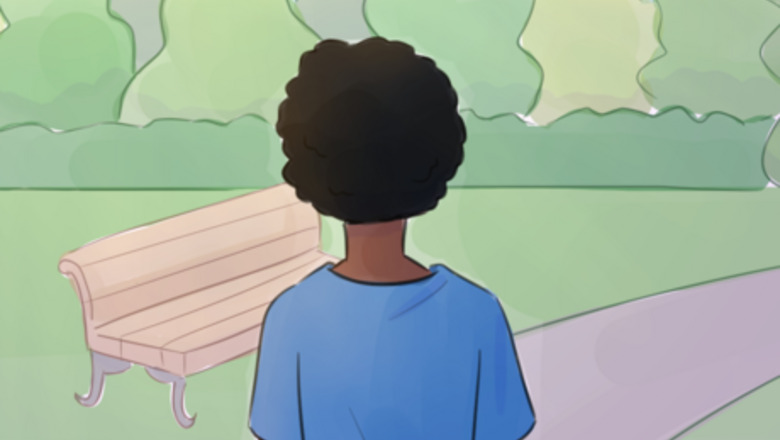
views
Responding to their Presence
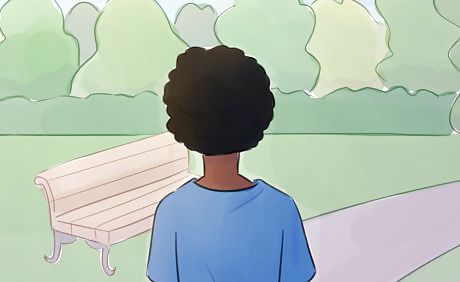
Avoid the person if you don’t want any contact. Look down, avoid eye contact, or perhaps even go the other way. Do what you can to ensure your paths don’t cross. Pull out your phone or even pretend to talk to someone. If you do not want to make any contact with the person, don’t. If the person appears to want to talk to you, make it clear you do not wish to speak. If needed, say, “I refuse to talk to you.”
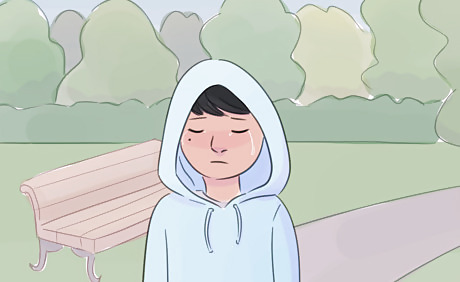
Leave if you want to or need to. You don't have to stay in the presence of this person. For example, if you are with other people at a restaurant, excuse yourself and leave. You don't have to explain yourself. "Say, I'm going to use the bathroom” or, “I need some air.” If you’re on public transportation or somewhere you can exit quickly, do so.
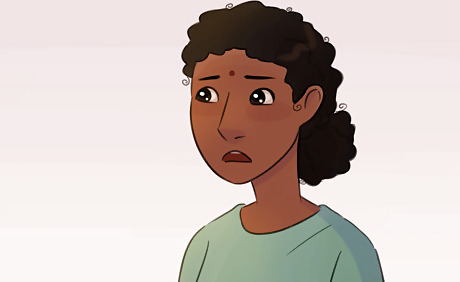
Confront the person, if you want. You have every right to confront the person if that’s what you want to do. If your anger or disgust push you to confront the person, decide how you want it to go. Do it for yourself and not for the other person’s reaction or anybody else’s reaction. Say what you want to and need to say and walk away feeling empowered. Make sure you are safe before confronting your abuser. Consider your location. Is it a busy public place or an isolated area? Are you alone or are there friends with you? If you believe you are in danger or that the other person might try to retaliate, do not confront the person. Instead, you may want to find an opportunity to slip away. If the opportunity comes and goes or if verbal confrontation is not for you, symbolically confront the person. Write a letter to the person and burn it.
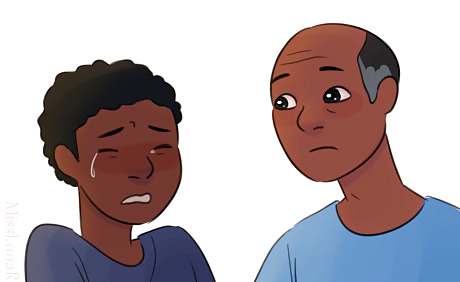
Make a scene if they follow you. If you feel threatened or are approached by the person, make some noise and don’t hold back. Screaming "Stay away from me!" "Leave me alone!" or "Don't hurt me!" can make it very clear to passersby what's going on. This will alert other people that this person is scaring you, and it's likely that people will try to help. If strangers notice or try to help, that's good. This will help shame the rapist away and keep you safe from them. You aren't doing anything wrong by alerting people that you need protecting. If your rapist follows your car, drive to the nearest police station and walk right in. Inform the police about what's happening.
Coping with Your Emotions
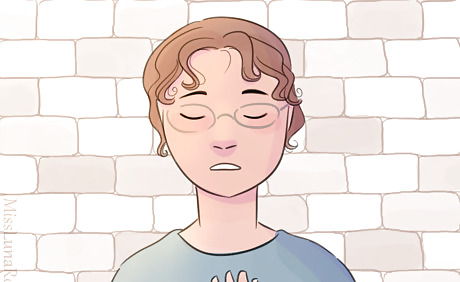
Take some deep breaths. You may feel very shaky and panicky. It’s okay to feel this way (or any way). Calm yourself quickly by doing some deep breathing. Inhale deeply and feel the air fill your lungs. Hold your inhale, then exhale with a long breath. Repeat this exercise until you feel your mind and body feel calmer. You can also focus on your senses to feel calm and anchor yourself in the present moment. As you breathe, use grounding techniques to help you stay calm. One way is to count to 100. Another good technique is to pick a color and find things around you that are the same color.
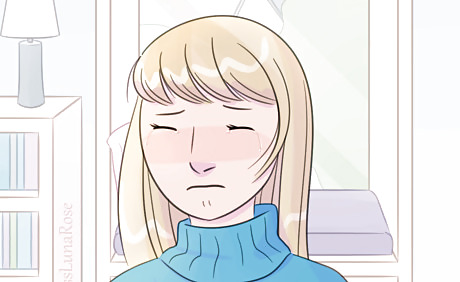
Acknowledge your emotions. It’s okay to feel shocked, fearful, ashamed, panicked, stressed, or numb if you see someone who hurt you. You survived a horrific event and it’s okay to feel upset or even confused by seeing this person again. Acknowledge what comes up and how you feel without feeling like you have to hide from yourself. If you burst into tears or immediately run and hide, that’s okay. Acknowledge how you feel and that it’s okay to feel that way. You might need some time to process how you feel. In the days after seeing the person, take time to acknowledge your feelings and feel them. Consider using a journal or talking to a friend. If the encounter triggered you or caused new trauma, consider seeing a mental health professional for help.
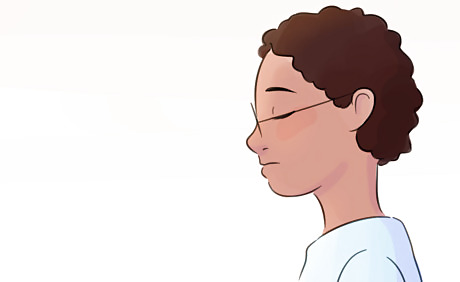
Remind yourself that it wasn’t your fault. If you see the person and instantly feel ashamed, victimized, or to blame, remind yourself that what happened was not your fault. It had nothing to do with what you wore, what you drank, or what you said. Even if you were reckless or thoughtless, lots of people are reckless or thoughtless sometimes, and that doesn't mean they deserve to be attacked. The rapist chose to hurt you and that's their fault alone. If you notice negative thought patterns are triggered, repeat to yourself that it wasn’t your fault and the blame is not on you. Self-blame and negative thoughts are common for survivors of rape, even long after the event. If you have anxiety, PTSD, or thoughts of self-harm, seek help from a mental health professional.
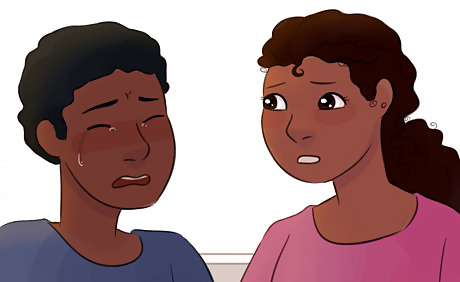
Connect with someone you trust. If you have a trusted friend or family member with you, explain to them what just happened. If you are alone, take out your phone and call them. Hearing the sound of their voice may help you feel less panicked. Talk to someone you trust and you know will listen and care about you. If you don’t want them to tell anyone, choose someone who is trustworthy and will respect your wishes.
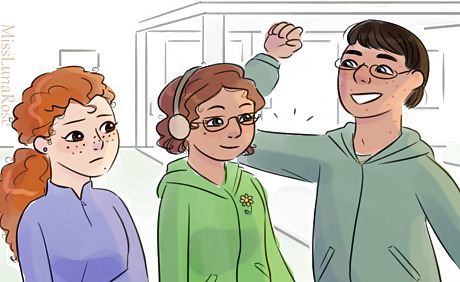
Don’t pretend like everything's okay just because you think you're supposed to. You don’t need to act “okay” or pretend like you’re fine with everything just because you’re in public. If you need to cry or run the opposite direction, do so. You certainly do not need to say hello or be nice to the person. Handling your trauma and staying safe is more important than being polite or keeping up appearances. If the person approaches you, don’t feel like you have to talk or be pleasant with them.
Dealing with Seeing the Rapist Regularly

Avoid any unnecessary contact. While you might see this person around, avoid any potential interactions. For example, if you see the person at school or university, go places with a group of people and have a quick way to escape any potential encounters. Avoid the person’s place of work or places you know they hang out. Making these changes may be difficult, but if it helps to decrease your fear, it’s worth it. You may not avoid places forever, but it might help you through the pain and fear you feel now. If you have mutual friends with the person and the association upsets you, consider cutting those people out of your life, at least temporarily. If someone triggers you, it’s best if they’re not in your life.
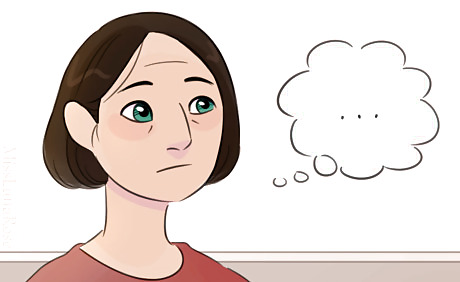
File a police report if you want to take legal action. If you feel uncomfortable being around the rapist and decide to prosecute them, go to the police and file a report. They will ask you details about the rape, so be prepared to talk about what happened. You can bring a friend or family member with you for support. You may also file a report by calling 9-1-1 in the United States or by going to a medical facility. Some people report feeling re-traumatized by court proceedings and the justice system. However, if you feel like you want to protect your safety and are willing to seek legal action, do it.Tip: Don't let other people push you to make a certain decision if you aren't comfortable with it. Reporting is incredibly brave. Some people find it empowering while others find it too scary and may worry about repercussions. You know your situation and your feelings best. This is your choice.

Get a restraining order if you fear them coming near you. Filing a restraining order is fairly simple and can ensure your safety. This is an order of protection that dictates that the rapist may not to come near you, approach you, or speak to you. Even if you do not file a police report, you can still file a restraining order. Obtain a restraining order from your county’s court system. You will need to complete some paperwork and turn it into the courthouse.
Taking Care of Yourself
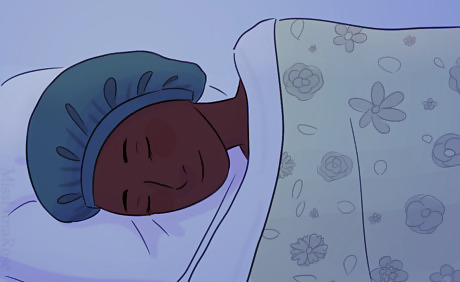
Take care of your body. It’s important to take care of yourself, especially if you feel stressed from the situation. Make sure you’re getting enough sleep, eating properly, and exercising. You are in control of your body and it’s important to feel that way. If you’re struggling to take care of yourself or are having difficulty sleeping or eating, you may be experiencing PTSD or depression. Talk to a therapist if your symptoms persist for more than two weeks.
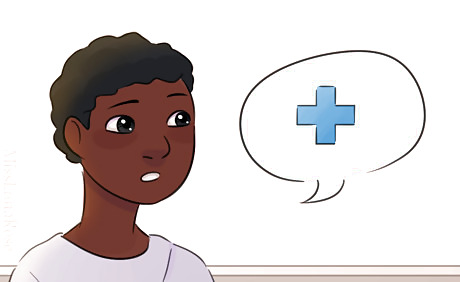
Get help for symptoms of PTSD. Some survivors of sexual assault experience post-traumatic stress disorder (PTSD). If seeing the rapist triggers a traumatic stress response (such as having flashbacks or nightmares or feeling on alert all the time), you may want to get professional help. One of the best ways to get treatment is to see a therapist who specializes in treating trauma. They can give you some tools to help you overcome your experience and move on with life. Find a therapist by asking at a local rape crisis center, university counseling center, calling your insurance provider, or asking a friend. You can also attend a survivor support group to meet other people who have had similar experiences as you.
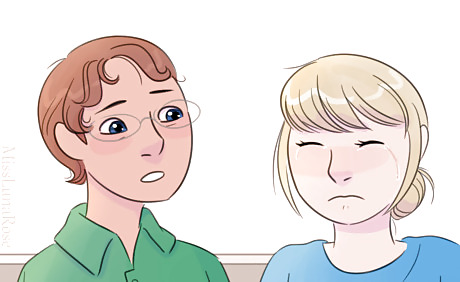
Attend a support group. Maybe seeing the rapist made you realize how deeply everything has affected you and that you need some healing. It can be helpful to meet with other survivors of sexual assault to know that you’re not alone. You may feel like nobody understands or feels your pain, so connecting with other people who have ‘been there’ can be healing. You may want to talk about the event, how you feel, gain some support, or ask for advice. The group is a safe place where you can share and not be judged. Find a support group locally through a mental health clinic or hospital or join an online community.


















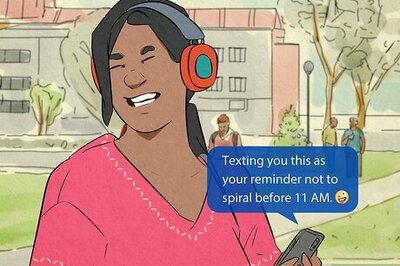
Comments
0 comment